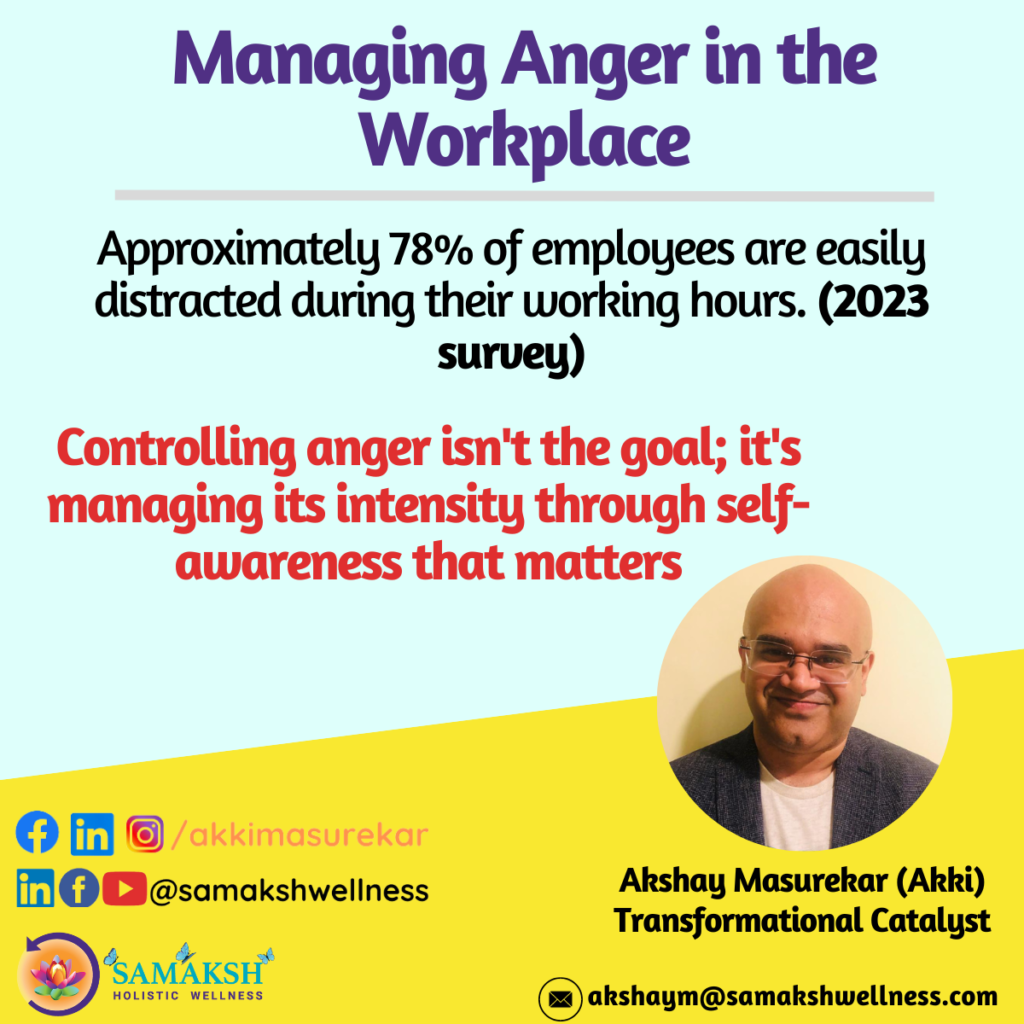Managing Anger in the Workplace

Deep and Anuja were leaders in their departments and often collaborated since their teams had overlapping tasks.
Deep usually kept his emotions to himself and didn’t share his feelings with others. In contrast, Anuja was very energetic and brought a lot of enthusiasm to her work. Both of them and their teams consistently met or exceeded their targets.
Sometimes, Anuja could be unkind and make sarcastic comments when Deep’s team made a mistake, calling them ‘Duffers & Losers.’ Deep handled this by encouraging his team to ignore her remarks.
Anuja also frequently interrupted Deep during conversations and shared her opinions during meetings. This had been going on for a while, and Deep was growing frustrated. He wanted to discuss it with Anuja but hesitated because he didn’t want to harm their friendly relationship.
His bottled-up feelings caused internal conflicts. He vowed to address the issue with Anuja but couldn’t gather the courage to do so at the office.
As a result, their relationship deteriorated and Deep distanced himself from Anuja. Anuja noticed this change but chose to ignore it, unaware that her behavior was the cause.
One day, Anuja made a casual comment about Deep’s appearance right before an important client presentation. He couldn’t take it anymore and confronted her, asking her to respect his boundaries and control her behavior or consider leaving. They had a public argument in front of the entire office.
Sound familiar? Suppressing anger often leads to such outbursts. When we can’t express anger when it arises, it can escalate disproportionately.
So, how can you manage workplace anger? Here are some steps:
- Awareness & Acceptance: Recognize your feelings and allow yourself to acknowledge them. Understand what’s causing your anger.
- Decode its message: Anger is a signal that you need to assert yourself or set boundaries. Understand what your anger is trying to tell you, like in Deep’s case.
- Stop Personalizing Things: Often, we take things personally, but remember that feedback or comments are about behavior, not the person. In Deep’s case, it wasn’t that his team were losers, but he personalized it.
- Express & Communicate: Once you’ve recognized your emotions and understood the message behind your anger, it’s essential to address the issue with the person who triggered it, as Deep should have done with Anuja. Keeping your emotions bottled up can harm your well-being and strain your relationships.
- Make it a Habit: Get into the habit of sharing your feelings and thoughts in a healthy way. Expressing your anger can help you release frustration.
Sometimes, you won’t have time to reflect. In those cases, focus on your feelings and express yourself calmly.
Controlling anger isn’t the goal; it’s managing its intensity through self-awareness that matters.
I specialize in assisting Professionals, Entrepreneurs, and Students in overcoming obstacles and gaining momentum in life through Coaching, Counseling, and Mentoring. Feel free to reach out to me at akshaym@samakshwellness.com.

Add Comment